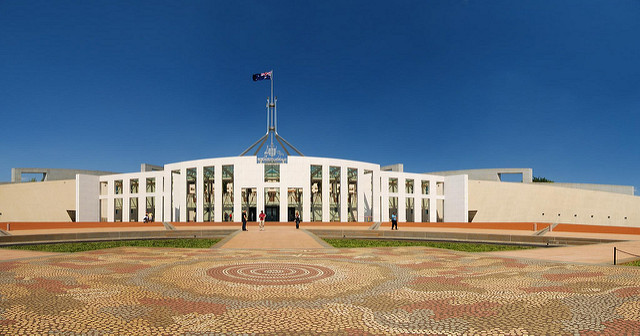It seems that Prime Minister Malcolm Turnbull and Treasurer Scott Morrison have embraced the need for genuine tax reform. At least they are prepared to contemplate a fairly wide-ranging public discussion of the issues, by encouraging proponents to “put all the options on the table”.
They are yet to rule anything in or out. So major interest groups, in particular, have been staking their claims, while the Opposition and key Senators on the cross benchers have already ruled out support for any change to the GST, neither broadening the base, nor increasing the rate.
However, Morrison has taken the indefensible position that the “Government doesn’t have a revenue problem”, promising to “fix the Budget” by further expenditure restraint, and a boost in growth, committing to not increase “the tax burden”.
This is not real life, and can’t and won’t happen, especially given the overall collapse in revenue relative to GDP, the prospect of sustained below trend growth, and the magnitude of expenditure commitments, most with bi-partisan support, across areas such as defence, school reform, hospitals, the NDIS, the NBN and other infrastructure, in the Budget out years.
Moreover, the sum of the parts – that is the total of the “wish lists” of the various interest groups – is far more than the Government will have the capacity to deliver, even with some increase in the overall tax burden.
Priorities will need to be set, trade offs contemplated, and potential “winners” and “losers” defined, and managed.
In these terms, the task of tax reform is almost Herculean. The situation has been left to drift, mostly neutered, time and again, by short-term politics, to the point where any change must be “a big one”. There is now little opportunity to just “tweak” the system, with a few marginal adjustments, given both the magnitude and urgency of the need for genuine reform, and the mounting business and community expectations.
There are genuine questions about the sustainability of some tax bases, such as the GST, corporate, payroll and other State taxes, and genuine challenges in what are now uncompetitive tax rates for both individuals and corporates.
Personal tax rates are high, mostly due to the large tax-free zone, which results in higher rates being charged at lower income levels, with all the disadvantages in terms of work force participation, savings, and so on. The top rate is globally uncompetitive, and bracket creep is potentially significant, and therefore costly to remedy.
The corporate tax rate is now visibly well out of line, given the global “race to the bottom” in corporate tax rates, and multinationals, that are significant to our economy, seem still able to excessively minimize the tax they pay us.
The GST is also dwindling in significance, being now confined to some 47 per cent of expenditure, and the expenditure it is on is growing far less fast than what it is not on. However, the community and vested interests against broadening it should not be underestimated, especially to fresh food, education and health, although there may be some tolerance in respect of financial services.
Turnbull has committed to be “fair”, a point he has emphasised and re-emphasised. In these terms, the focus will be on the form and extent of essential compensation, for any change in the GST, as well as the tax concessions that favour the wealthy – specifically, superannuation, negative gearing, and capital gains tax.
Finally, the whole issue of tax reform must be addressed in the context of a genuine review and reform of our Federation that, inter alia, seeks to allocate responsibilities to just one level of government, creating the framework for genuine restraint on spending by government overall, and thereby defining the magnitude of the taxing task.
Against this background, encouraging “all issues to be put on the table”, and then letting the debate run, without direction, can soon prove to be counterproductive, compounding the difficulty of the task, as expectations soon get raised, and hardened, well above and beyond the Government’s capacity to deliver.
At the very least, the Government needs to quickly set some framework for reform, specifying key parameters and options.
For example, specify just how much total revenue they would have to play with, if, say, they were to increase the rate of the GST (with minimal broadening), and reduce concessions to the wealthy – specify, by way of a number of options, how much they would need for compensation, and what capacity they would have to return bracket creep, and lower personal and corporate tax rates.
This essential information and direction would soon ground the (becoming) rampant expectations, and facilitate an overarching tax reform narrative that they could then set before the electorate before the next election.
In doing this, the tax narrative will need to be set in a broader narrative that seeks to outline the transition of our economy/society from one based on a resources boom, to whatever, in a decarbonising world.





Recent Comments